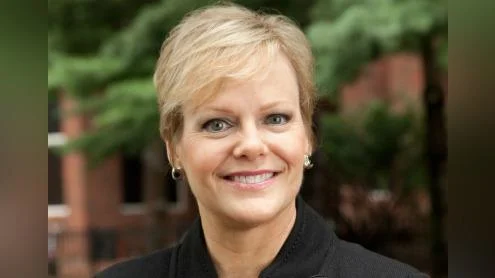Linda Moore President and CEO at TechNet | Official website
TechNet, a national network of innovation economy leaders, has released findings from a new poll conducted with Morning Consult. The survey indicates that a significant majority of voters prefer a unified national policy for AI development over state and local regulations. This sentiment is shared across party lines.
The poll highlights that 70% of voters are worried about China potentially surpassing the U.S. in AI advancements. Additionally, 67% believe that disparate state laws on AI could hinder the nation's ability to compete globally.
"In 2025, over 1,000 AI bills have been introduced in state legislatures – many containing incompatible rules and requirements," stated TechNet CEO Linda Moore. "Americans understand what’s at stake and favor a single national policy to ensure responsible AI development so that we can mitigate the risks of artificial intelligence, reap the benefits of this powerful technology, and secure America’s leadership in innovation for generations to come."
Key insights from the survey include:
- A majority (55%) feel confident using AI tools, while 58% are optimistic about their positive impact.
- A notable 76% support a single national policy for developing AI models.
- Voters believe national standards will facilitate compliance across states without limiting individual state concerns.
- Concerns exist regarding the technical capacity of state and local governments to handle security vulnerabilities in AI laws.
The survey also found that Republicans are particularly concerned about fragmented regulations impeding competition and express optimism about AI's potential benefits.
This study was conducted online with 2,056 registered voters between June 3-4. The data were adjusted to reflect demographic targets based on various factors such as gender, age, education level, race/ethnicity, region, voting history in the 2024 presidential election, marital status, home ownership status, and parental status. The margin of error is plus or minus two percentage points.

